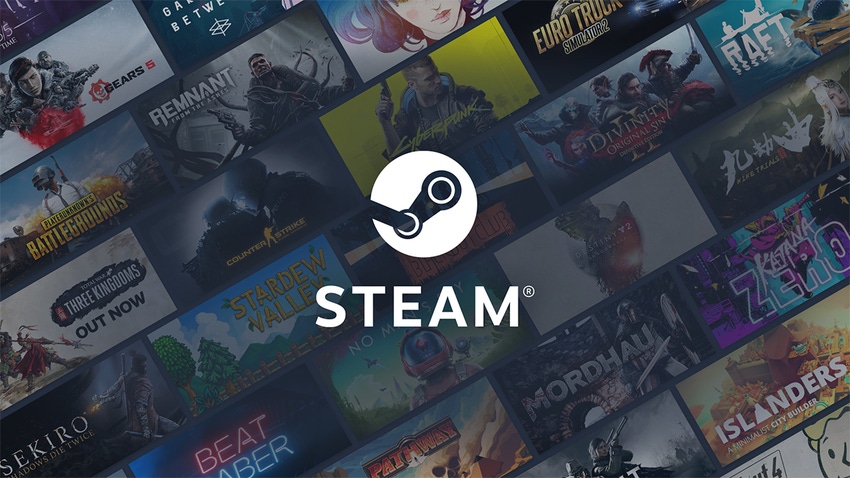Third-party gambling continues to grow on Steam since Valve said it would attempt to crack down on it back in 2016.

A new video from People Make Games goes into the gambling industry and its relationship with Valve's Steam marketplace. Similar to Steam's skin betting scandals of 2016, third-party sites are backing bets using items on Valve's Steam marketplace.
And it's largely doing so, argues People Make Games, due to Valve's reported neutrality on the matter.
Per the video, entire marketplaces and third-party gambling sites have grown for the sole purpose of selling Counter-Strike: Global Offensive skins acquired from loot boxes for real-world money. These websites piggyback off of Steam's own API, which helps them grow and catch players' attention.
These sites are said to be incredibly "frictionless," and having a Steam account is the sole requirement to join. On these sites, players are able to use skins for games like Counter-Strike: Global Offensive as chips, which can then be redeemed for real-world cash via the Steam Marketplace.
For young players who want a particular skin, gambling may be an easier way to acquire than spending hours grinding and hoping luck is in their favor.
The video game industry has a contentious relationship with the gambling world, and comparisons have often been drawn between loot boxes and gambling. Loot boxes have been heavily criticized for encouraging players (particularly those underage) to spend real-world money to buy in-game items.
As the video further explains, Valve's first foray into loot boxes began with three of its own titles: Team Fortress 2 (2010), DOTA 2 (2012), and Counter-Strike: Global Offensive (2013). The same year Valve introduced loot boxes to DOTA 2, it also launched the Steam Community Market, wherein players could sell in-game items such as skins or weapons to other players, who would pay for it with real-world money.
Both DOTA 2 and Counter-Strike, it should be said, are two of Steam's most-played games to this day. Game Developer checked the Community Market, and items from those two games (particularly Counter-Strike) are among the most popular.
Gambling has been an issue for Valve in the past
People Make Games' video acknowledges that yes, other games such as Roblox have similar gambling scenes similar to that of Counter-Strike. However, Roblox Corp., according to PMG, has been much more willing to cut off gambling at the pass compared to Valve.
For one thing, Valve's rules for the Community Market lets it take a 10 percent cut of a user's revenue if they sell in-game items from the developer's games, such as Counter-Strike or DOTA 2. And again, both of those games are extremely popular on Steam. Whether it intends to or not, Valve allowing skin gambling to persist means it profits off of those sales.
In 2016, Valve said it would make attempts to stop third-party gambling on Steam and Counter-Strike, or at least called on the practice to end. Both of these instances came after the Steam maker was hit with a lawsuit from parents of underage players, who alleged that their children bought Counter-Strike skins from gambling sites.
At the time, Valve was also hit with accusations from the Washington State Gambling Commission of allowing these sites to persist. Valve categorically denied those claims, saying it had "no business relationship" with those sites, further adding they existed without the developer's knowledge.
That suit was ultimately dismissed at the start of 2022. At the time, the judge stated that since the players never played Counter-Strike or used Steam in any capacity, Valve was technically not at fault for the players' actions.
According to one ex-staffer at Valve speaking to People Make Games, the developer is reportedly a "chaotic, neutral company. They do everything they can to stay as neutral as they can, no matter what."
"It's a very libertarian place," said another former developer. "Valve doesn't want to say what can and can't happen on Steam."
Further helping Valve's hands be clean of the situation is that the gambling has grown to a point where it may not even be feasible to actually do anything. Steam's Open ID has become too easy to manipulate, said one of the ex-devs, and creating a process to combat gambling would be "against the Valve ethos."
"We could create an allow list, but then we'd need to create a process for people to apply," they explained. "And then we'd need to create a process by which someone has to approve and validate those. It's a bunch of hard to automate work."
And it doesn't hurt that the gambling sites provide a steady stream of revenue, players, and attention for Valve's games. It's a cycle that's constantly feeding itself, one where Valve and the gambling sites both profit.
It's why, according to one Counter-Strike player, the expectation is that Valve will continue to let gambling thrive. "They are so hands-off," said that player. "Nobody kind of expects anything of Valve."
People Make Games contacted Valve and received no response prior to publishing its video. Game Developer similarly reached out, and will update when a response is given.
About the Author(s)
You May Also Like









